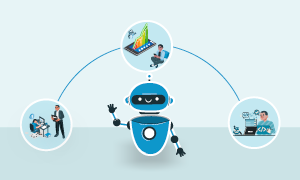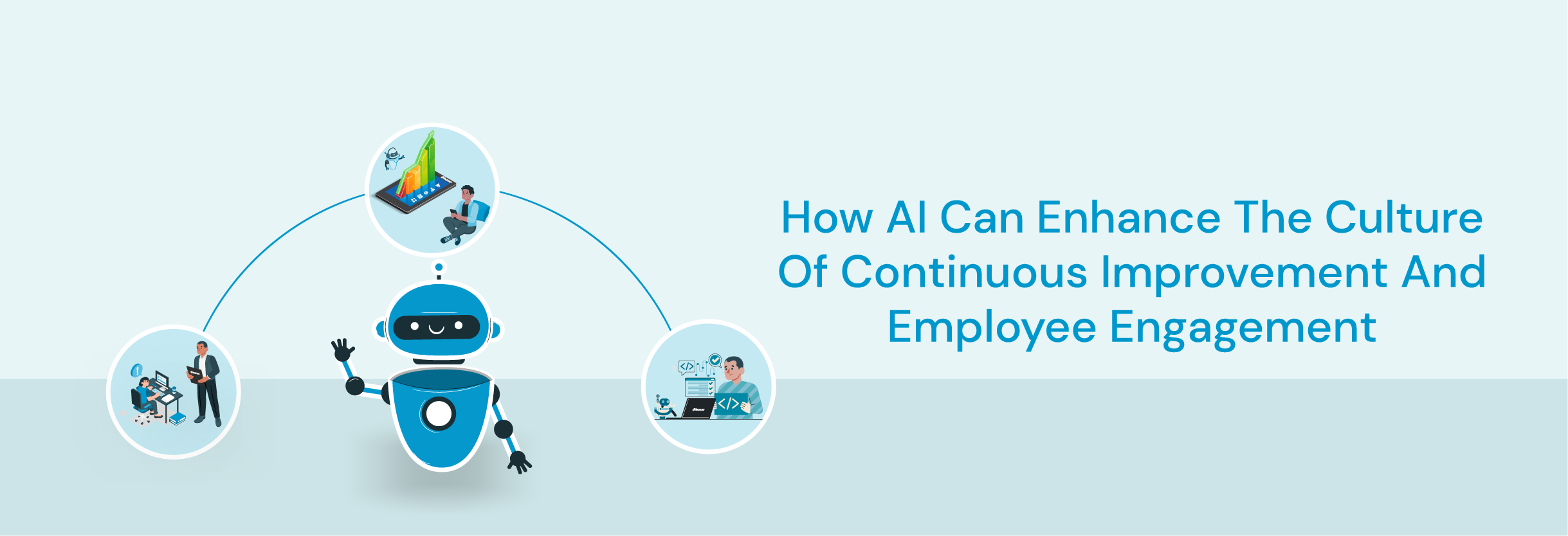
How AI can Enhance the Culture of Continuous Improvement and Employee Engagement
In today’s business environment, Continuous Improvement (CI) is not just a buzzword; it’s a necessity for survival and growth. Organizations kick off their CI journeys with the best of intentions, aiming to align their efforts with strategic objectives. However, the initial enthusiasm often wanes, and daily work challenges take precedence. Old habits die hard, as they say. So, how do we sustain and build upon the foundation of CI?
Artificial Intelligence (AI) can give a significant boost. AI is not just a tool for automation or data analytics; it’s a catalyst for cultural transformation. Here’s how AI can enhance the culture of continuous improvement and boost employee engagement at various organizational levels.
Frontline Leaders
Identifying Problems And Suggesting Solutions
AI can sift through a plethora of data to identify potential problems and their root causes. It can also recommend best practices based on historical data and industry benchmarks. This not only saves time but also ensures that the solutions are data-driven and effective.
Time-Saving Research
Frontline leaders often spend a significant amount of time researching to solve recurring problems. AI-powered tools like lean365.ai can dramatically cut down this time by providing instant insights and actionable recommendations.
Real-Time Decision Support
AI can offer real-time analytics and predictive models that help frontline leaders make quick and informed decisions, thereby reducing downtime and improving efficiency.
Senior Leaders
Summarized Interactions For Effective Rounding
AI can provide senior leaders with summarized data of previous interactions, helping them to be more effective during their rounding sessions. This ensures that they are well-informed and can guide teams to make impactful contributions to ongoing projects.
Strategy Alignment
AI can analyze the alignment between frontline efforts and the organization’s strategic objectives. It can flag discrepancies and suggest corrective actions, ensuring that everyone is rowing in the same direction.
Risk Mitigation
AI can forecast potential risks and bottlenecks in processes, allowing senior leaders to take proactive measures. This is crucial for long-term planning and sustainability.
Frontline Teams
Easy Idea Submission
AI can simplify the process of idea submission for frontline teams, making it easier for them to contribute to CI initiatives. Simple voice or text commands can capture their ideas, which can then be automatically categorized and prioritized.
Realizing Global Impact
AI can track the impact of these ideas not just within the organization but also benchmark them against industry standards. This gives employees a sense of the broader impact of their contributions, boosting morale and engagement.
Skill Enhancement
AI can identify skill gaps within frontline teams and recommend targeted training programs. This not only improves performance but also contributes to employee satisfaction and retention.
Conclusion
AI is not just a technological advancement; it’s a cultural shift. By supporting leaders and teams at various levels, AI can significantly enhance the culture of continuous improvement and employee engagement. It’s time we move beyond the traditional tools and methodologies and embrace AI as the new cornerstone of organizational excellence.



 December 9, 2023
December 9, 2023